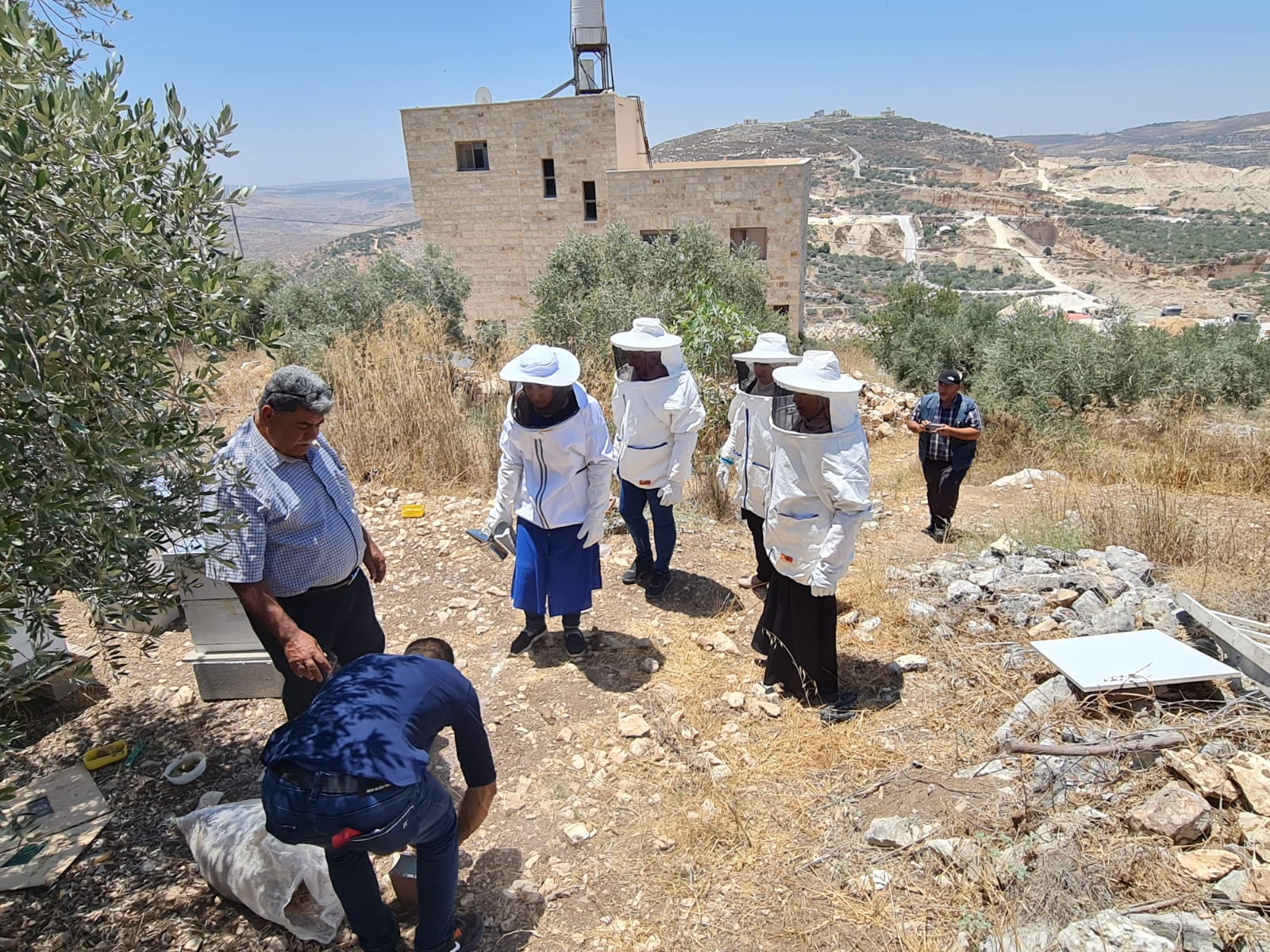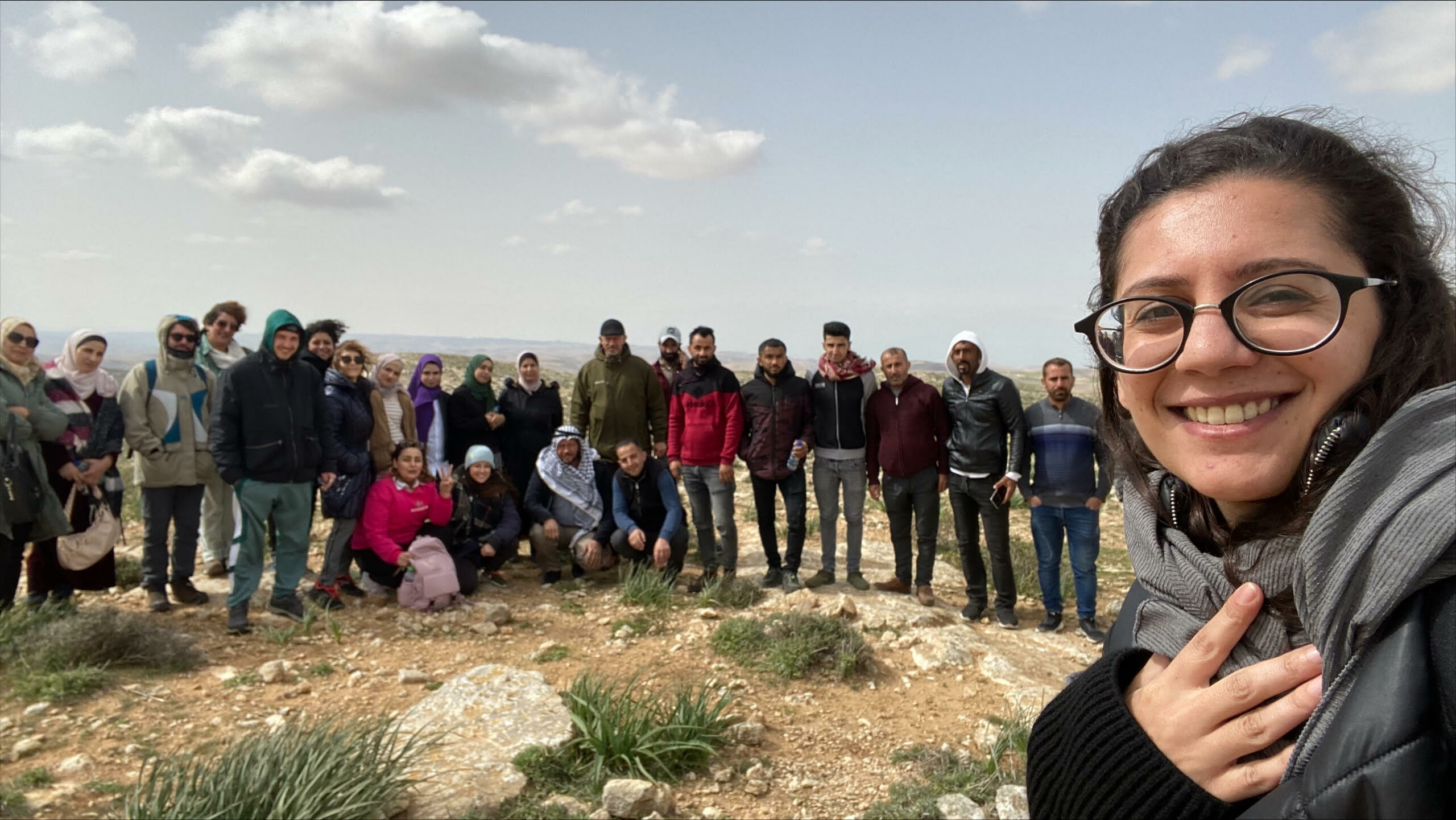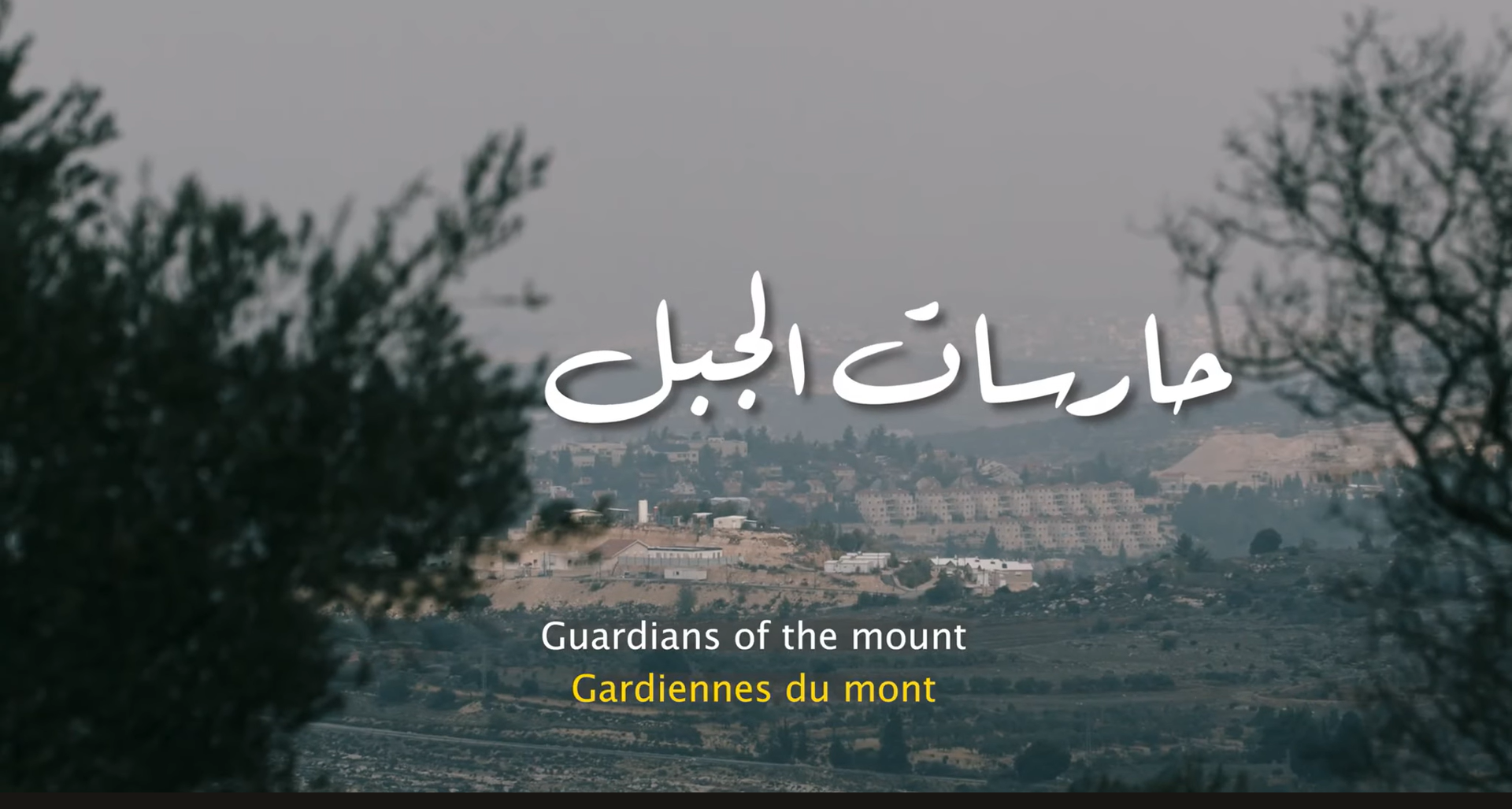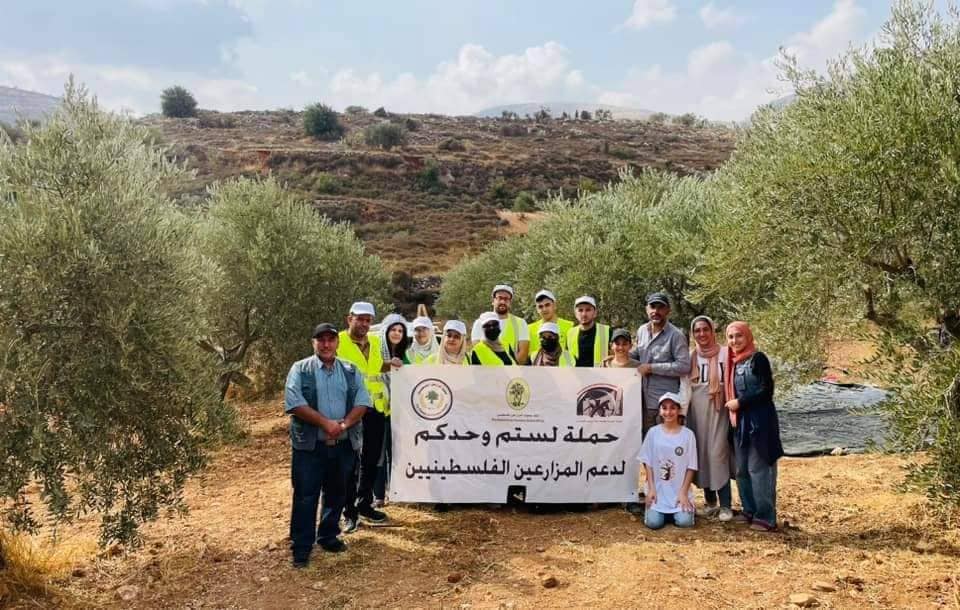Models of Sumoud
We are working together with the most affected communities to build collective initiatives that
a) develop the economy of ‘sumud’ (steadfastness) of the communities.
b) defend Palestinian lands.
c) help communities to become more resilient in order to resist displacement.
In each community the ‘model of resistance and sumud’ may look different and is developed during conversations about the most urgent challenges and possible ways to confront them.
Agricultural Cooperatives
Through 2021 and 2022, we had supported the creation of three agricultural cooperatives. The three cooperatives are run by 26 women from the villages of Aseera Al-Qibliya (Nablus district), Kufr Thilth (Qalqilya district) and Sinjel (Ramallah district), which are all located in the so-called Area ‘C’
and encounter Israeli land takeover and settler violence. These cooperatives, in addition to another cooperative we created in Burin, Nablus district, in previous years serve as a model for a radical approach
outside the domain of the neo-liberal economic system Israel has been imposing on us; as well as outside the patriarchal realm in which women are marginalized and objectified. Moreover, these cooperatives are a tiny, but important element of small-scale economic development among these rural women. They are also another way to strengthen Palestinian attachment to and sumoud on the land amid Israel’s systemic efforts to detach Palestinians from their land through various forms of systemic violence.
We released the film “Guardians of the Mountain”, which shows the struggle of women farmers and their adoption of agricultural cooperatives as a means to achieve self-sufficiency and protect the land from settler attacks, as they are living in areas that are subjected to various forms of violations.
1- Increasing Palestinian presence in the Jordan Valley
We believe that supporting the steadfastness of threatened Palestinians who are already existing in the Jordan Valley is crucial but not enough. Over the course of decades of Israeli oppression, many families were forced from their lands, especially those who were stripped off any source of income. In 2022, we supported a family of five people to return to their land in the Northern Jordan Valley by providing them with livestock, residential tents, animal shacks and crops to cultivate their land.
We also helped in cleaning the area and one of the natural water springs there to serve the families’ daily needs, as well as to defy Israeli apartheid practices in the area, where Palestinians are denied access to their own water resources.



